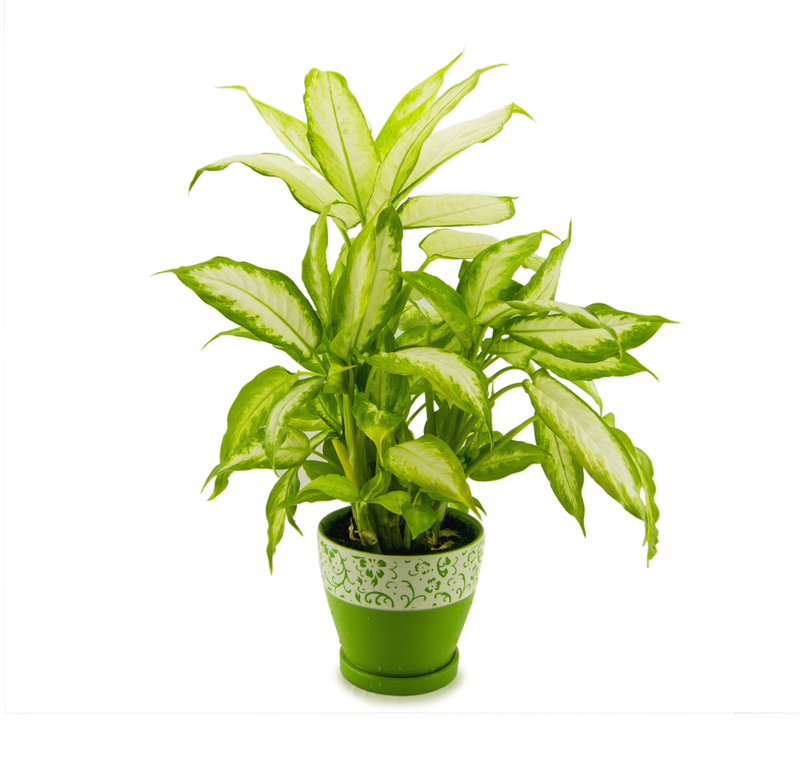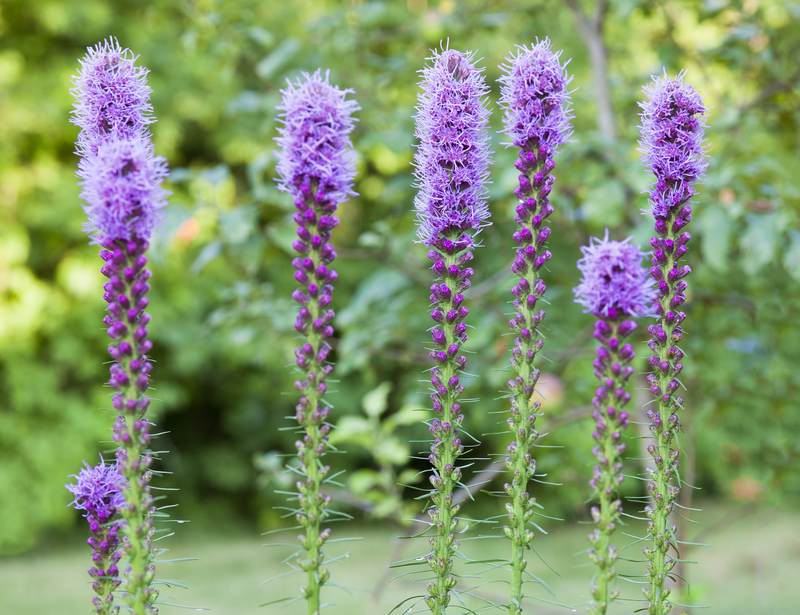Nurture Nature: Growing Herbs at Home
Posted on 01/06/2025
Nurture Nature: Growing Herbs at Home
Growing herbs at home is a rewarding journey that connects you deeply with nature, enhances your culinary adventures, and offers therapeutic benefits. Whether you have a sprawling backyard or a cozy apartment, learning how to nurture nature by cultivating your own herb garden is easier than you may think. In this comprehensive guide, we'll dive into the practicalities, tips, and joys of growing fresh herbs at home, ensuring your indoor or outdoor herb garden flourishes year-round.
Why Grow Herbs at Home?
Herbs are more than just flavorful additions to your meals; they're a gateway to sustainable living and a greener lifestyle. Below are key reasons to nurture nature by growing your own herbs:
- Freshness: Homegrown herbs are more vibrant and flavorful than store-bought ones.
- Convenience: Snip what you need, when you need it--right from your windowsill or garden.
- Cost-effective: A small investment in seeds or starter plants saves money over time.
- Health benefits: Many herbs offer medicinal properties, from calming teas to natural anti-inflammatories.
- Eco-friendly: Reduce food waste and packaging by growing herbs at home.
- Beauty and biodiversity: Herb gardens attract pollinators and beautify your space.
Benefits of Growing Culinary and Medicinal Herbs
The therapeutic value of cultivating herbs at home extends beyond the kitchen. Basil, mint, chamomile, and lavender - to name a few - boast health-promoting compounds. Having herbs at your fingertips means you can brew calming teas or create soothing balms as the need arises. For the eco-conscious, it's an excellent step toward sustainable living and nurturing nature at its roots.

Choosing the Right Herbs for Your Home Garden
Selecting the right herbs is pivotal for a successful home herb garden. Begin by assessing your space: Do you have sun-filled windows, a balcony, or an outdoor patch? Next, consider the herbs you use most in cooking or those with medicinal qualities you wish to explore.
Popular and Easy-to-Grow Herbs
- Basil: Perfect for Italian dishes and summer salads.
- Mint: Invigorates drinks, desserts, and even repels pests.
- Parsley: A mild, versatile garnish and nutritional powerhouse.
- Rosemary: Aromatic and ideal for roasting and stews.
- Thyme: Freshens soups, roasted vegetables, and meats.
- Oregano: Classic Mediterranean herb for pizzas and pastas.
- Cilantro/Coriander: Key herb in Latin and Asian cuisine.
- Sage: Adds depth to savory dishes and supports health.
- Lemon Balm: Soothing for teas and fragrant gardens.
Grow what you love, and what fits your home environment!
Starting Your Herb Garden: Indoors vs. Outdoors
Indoor Herb Gardening
Indoor gardens allow you to nurture nature even in the smallest apartments. Many herbs thrive on sunny windowsills, requiring limited space and minimal equipment.
- Use containers with drainage holes to prevent root rot.
- Pick a spot that receives at least six hours of sunlight.
- Rotate pots regularly for even growth.
- Choose compact herbs like basil, chives, and parsley.
Tip: If natural light is scarce, supplement with LED grow lights.
Outdoor Herb Gardening
If you have a backyard, balcony, or patio, take advantage of outdoor conditions. Herbs grown outside often yield more and attract beneficial insects.
- Ensure your garden gets at least 6-8 hours of sun daily.
- Plant in well-draining soil, enriched with organic compost.
- Consider raised beds, garden plots, or larger containers for flexibility.
Outdoor herbs like rosemary and thyme can even withstand minor neglect and inclement weather.
Helpful Steps for Growing Herbs at Home
1. Gather Essential Supplies
- Seeds or starter plants from a reputable nursery.
- Pots, containers, or garden beds with good drainage.
- Quality potting mix: Look for soil specifically designed for herbs.
- Watering can or spray bottle for gentle hydration.
- Labels to keep track of different herbs.
Optional: Compost, organic fertilizers, gloves, or small gardening tools.
2. Planting Your Herbs
- Start from seeds: Follow packet instructions for spacing and depth.
- Transplant seedlings: Gentle handling is key; avoid damaging roots.
- Space accordingly: Overcrowding restricts growth and increases disease risk.
Herbs prefer slightly moist, well-aerated soil. Overwatering is a common pitfall--let soil dry gently between watering sessions.
3. Sunlight Needs
- Most herbs: Require 6-8 hours of direct sunlight each day.
- Partial shade: Mint, parsley, and chives tolerate less sun.
Rotate containers and prune regularly to encourage bushier plants and avoid legginess.
4. Watering Your Herb Garden
- Feel the top inch of soil; water only when it's dry.
- Use room-temperature water and avoid wetting foliage.
- Morning watering prevents fungal issues.
Remember: Overwatering kills more herbs than under-watering.
5. Fertilizing Herbs
- Use organic compost or diluted liquid fertilizer every 4-6 weeks.
- Too much fertilizer decreases flavor intensity.
For sustainable gardening, compost kitchen scraps and use them as natural nutrition for your herbs.
6. Pruning and Harvesting Herbs
- Pinch leaves just above a set of leaves or nodes to encourage bushiness.
- Harvest regularly, but avoid removing more than 1/3 of the plant at a time.
- Many herbs taste best before they flower; pinch off buds for continued leaf growth.
Freshly harvested herbs pack a punch in your recipes--use them right away for maximum flavor!
Troubleshooting Common Herb Growing Problems
- Yellow leaves: Typically from overwatering or poor drainage.
- Wilting: Could be due to under-watering or root rot.
- Pests (aphids, spider mites): Spray with a solution of mild soap and water.
- Leggy growth: Usually caused by inadequate light--move to a sunnier spot or add grow lights.
Tip: Inspect your herb plants often for early signs of trouble and act quickly. Healthier plants are naturally more resistant to pests and diseases.
Creative Ways to Nurture Your Home Herb Garden
- Vertical gardens: Utilize shelves, wall planters, or hanging pots for space-efficient growth.
- Hydroponic systems: For tech lovers, small hydroponic kits offer soilless cultivation indoors.
- Companion planting: Pair herbs with vegetables or flowers for mutual benefit (e.g., basil with tomatoes, nasturtiums to attract pollinators).
- DIY Herb Kits: Many companies offer complete starter kits, making growing herbs at home easy even for beginners.
Adding a touch of creativity can further enrich your experience and the aesthetic of your living space. Herb gardens also make excellent educational projects for children or gardening novices.
Using Your Homegrown Herbs
Culinary Delights
There is pure joy in snipping fresh basil for a homemade pizza or mint leaves for a refreshing mojito. Other ideas include:
- Infuse oils or vinegars.
- Create unique pestos and sauces.
- Handcraft herbal teas and syrups.
- Garnish dishes artistically.
- Prepare healing salves or bath soaks.
Growing organic herbs at home ensures you know exactly what you're eating - pesticide-free, pure, and bursting with flavor!
Preserving Herbs for Later Use
- Drying: Air-dry or use a dehydrator. Store in glass jars.
- Freezing: Chop and freeze in ice cube trays with a little water or olive oil.
- Infusing: Make herbal oils, vinegars, and butters for longer shelf life.
Preserving your harvest can keep the taste of summer alive all year, while ensuring nothing goes to waste.
Sustainable Practices for Herb Gardening
- Reuse and recycle containers: Old mugs, cans, and jars make creative planters.
- Use organic methods: Avoid chemical pesticides and favor natural remedies.
- Compost: Return kitchen waste to your garden as rich compost.
- Save seeds: Dry seeds from mature plants for next season's growth.
By choosing sustainable techniques, you amplify the positive impact of growing your own herbs, contributing to a healthier environment and a greener planet.
Top Tips for Thriving Homegrown Herbs
- Observe your plants: Each herb is unique--adapt your approach as you learn.
- Don't fear failure: Mistakes are part of the gardening journey. Try again and adjust!
- Share and swap: Trade cuttings and seeds with friends and neighbors to multiply your plant variety.
- Keep learning: There's always something new in the world of edible gardening--books, communities, and online resources can help you grow.

Conclusion: Nurture Nature and Enjoy the Benefits
Growing herbs at home is a beautiful blend of science, art, and self-care. As you snip a sprig of rosemary, inhale the scent of basil, or brew a cup of mint tea, you enjoy the fruits of your labor and actively nurture nature in your daily life. Whether you plant on a sunny windowsill or a garden bed, cultivating herbs connects you to traditions of sustainability and nourishment.
Start your own herb garden today--watch your kitchen, your health, and your love for nature blossom!
Quick FAQ: Growing Herbs at Home
- Which herbs grow best indoors? Basil, chives, mint, oregano, parsley, and thyme are great choices.
- How much sunlight do herbs need? Most require 6-8 hours a day.
- Can I grow herbs in low light? Yes, mint, chives, parsley, and cilantro tolerate less light. Otherwise, supplement with grow lights.
- How do I prevent overwatering? Check soil moisture before watering and ensure good drainage.
- Are home-grown herbs safe to eat? Absolutely! Especially when you avoid chemical pesticides and use organic methods.
Ready to Nurture Nature? Start Growing Your Own Herbs Today!
Connecting with nature has never been more accessible. Embrace the journey, nurture your herb garden, and enjoy the countless rewards. Start with a single pot of basil or a lush mix of your favorite herbs, and cultivate a lifestyle that truly nurtures nature--starting right in your own home.

